Learning from our AI Research and COVID journey: What does it take to have more inclusive and gender responsive AI-driven health research?
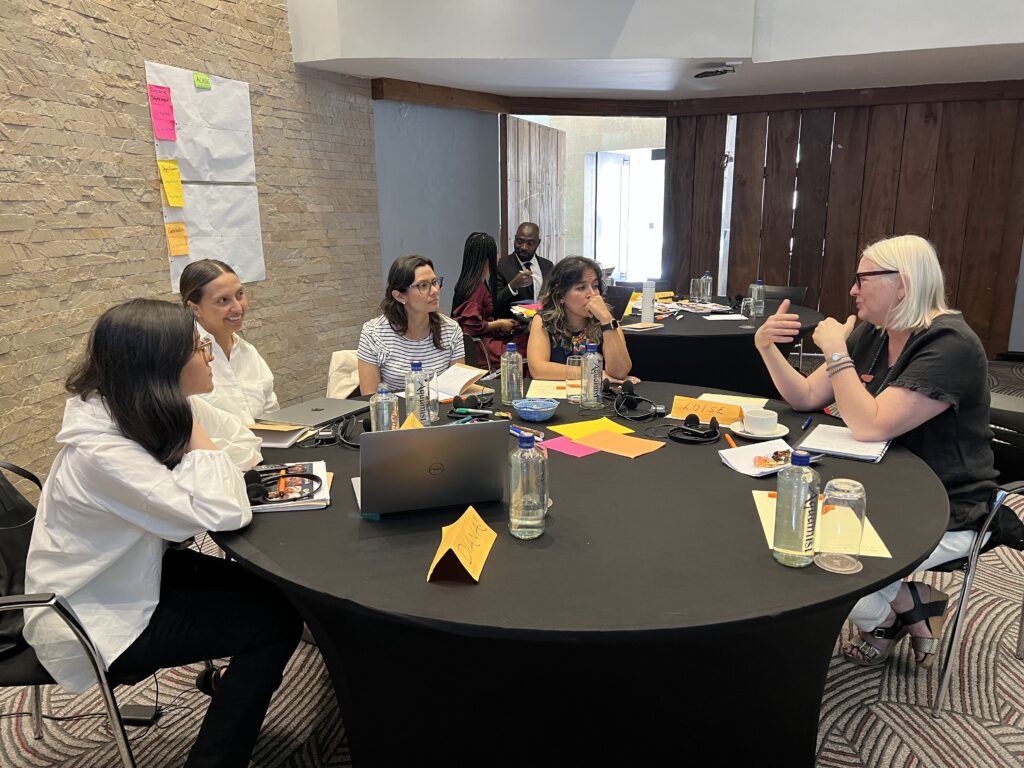
Carol Miller, and Marie-Katherine (Kate) Waller, two Gender at Work Associates, reflect on the key threads of this blog series that emerged from Gender at Work and research grantees’ collaboration in an 18-month gender action learning process in the AI4COVID program.
How do I understand mentoring?
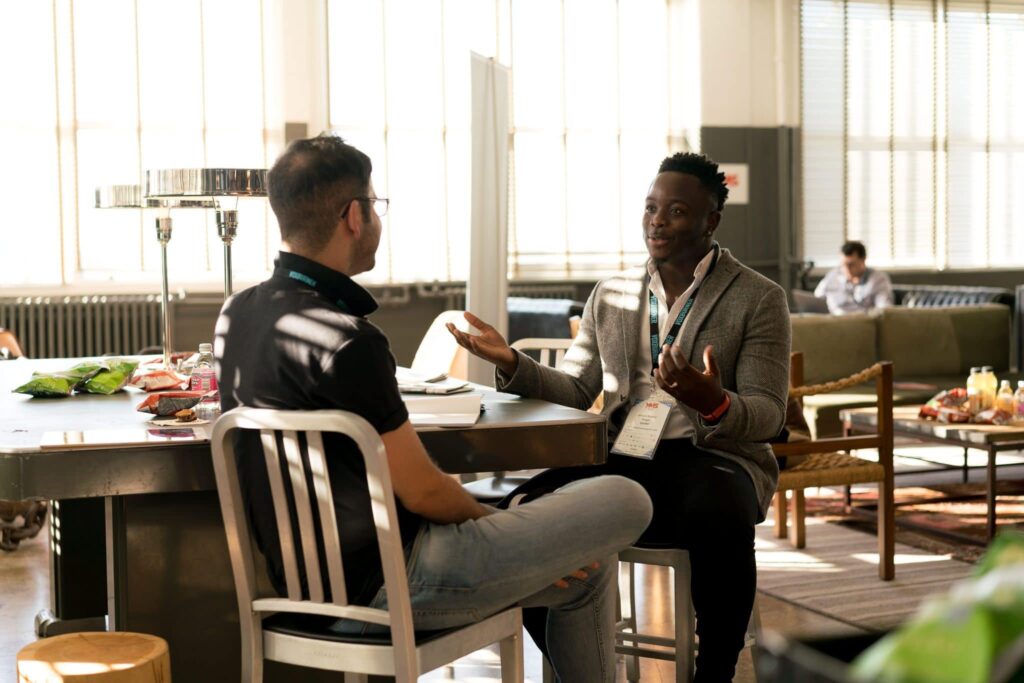
David Kelleher, Gender at Work Senior Associate, reflects about his trajectory, challenges and questions as a mentor in the organizational development space.
Gender and health data on the Venezuelan migrant population in Colombia
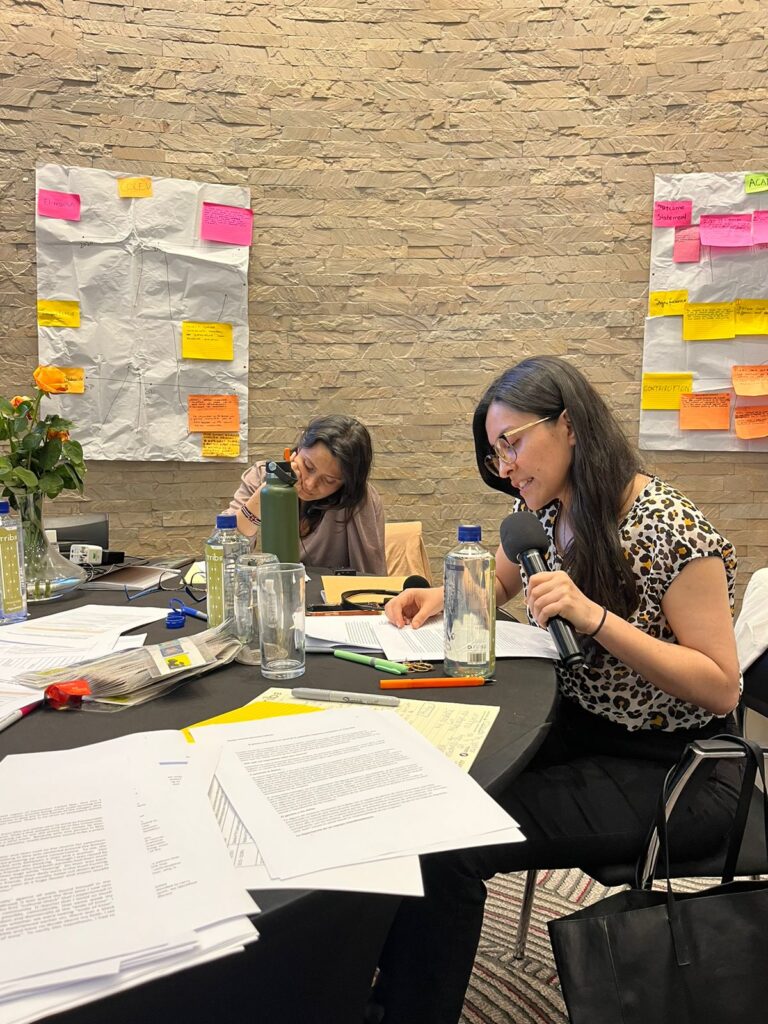
Sandra Patricia Martínez-Cabezas reflects on her research in the COLEV project, which focused on using responsible AI and data science to address COVID-19 challenges in Colombia. She recounts how her research team used health records of Venezuelan migrant populations crossing into Colombia to capture their health issues in national responses. In applying a gender lens, she explored the incompleteness of the data, how it was heavily skewed towards women and children and neglected men’s health.
Meeting the world, the work, and colleagues in new ways: Working emergently in sustaining an online learning community

“The work of exploring how the online space could be used to support a Gender Action Learning (GAL) process involving science granting councils (SGCs) across the African continent, without the opportunity to travel and meet one another, began as an experiment. It also began with this question. ‘What will it take to nurture an intimate, active, engaged, cross-cohort online learning community’?”
Walking Alongside: A practice to transform unequal power relations

“Being able to hear one another’s inner music by listening with the heart is at the centre of an embodied and decolonising practice, a practice that emphasises generosity, openness, reflexivity and ongoing self-critique.”
Viviparous creatures that desire to lay eggs
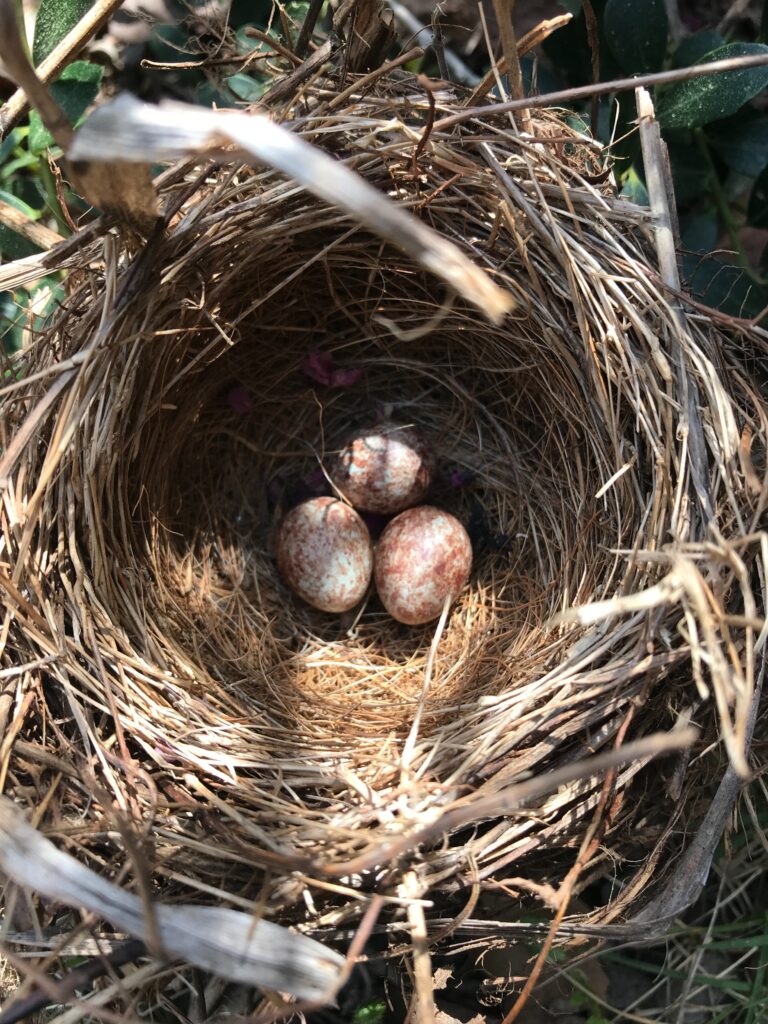
In early 2020, Gender at Work (G@W) was invited by the Human Sciences Research Council (HSRC), to partner in a project to support science granting councils (SGCs) across the African continent to […]
Mes aventures avec la COVID-19 sous la lanterne de l’intersectionnalité
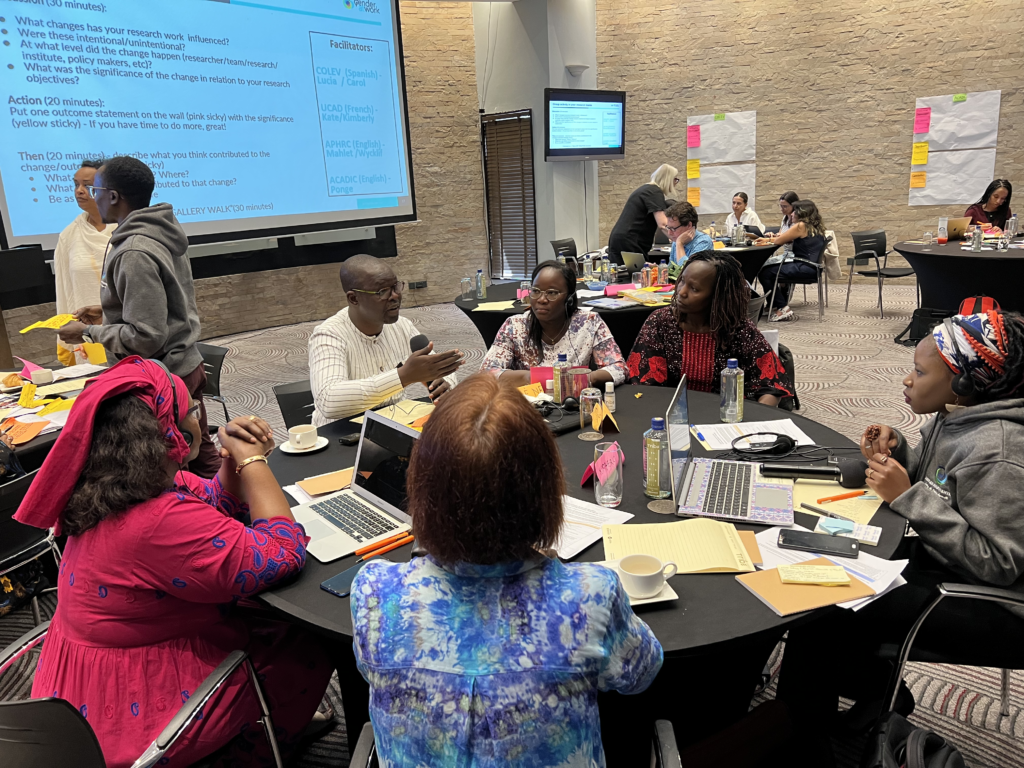
Hélène Diéne partage son expérience de la pandémie, où elle travaillait dans une clinique COVID-19 comme assistante de recherche et tombe elle-même malade par la suite. Elle évoque ses craintes et ses incertitudes et explique comment ces expériences l’ont amenée à comprendre l’importance du genre et de l’intersectionnalité pour l’utiliser dans sa recherche doctorale sur les impacts désagrégés du COVID-19 afin d’être plus pertinente au regard du contexte.
My adventures with COVID-19 under the lantern of intersectionality

Hélène Agnès Diéne shares her experiences during the pandemic, working in a COVID-19 clinic and later falling ill herself. She reflects on her fears and uncertainties, and how these experiences led her to understand the importance of considering gender differences in coping with illness. Learning about gender and intersectionality through her research role enabled her to realize she would use such a lens in her doctoral research on disaggregated impacts of COVID-19 to be more contextually relevant.
Gender Marked Me: The Value of Gender Analysis in AI Research
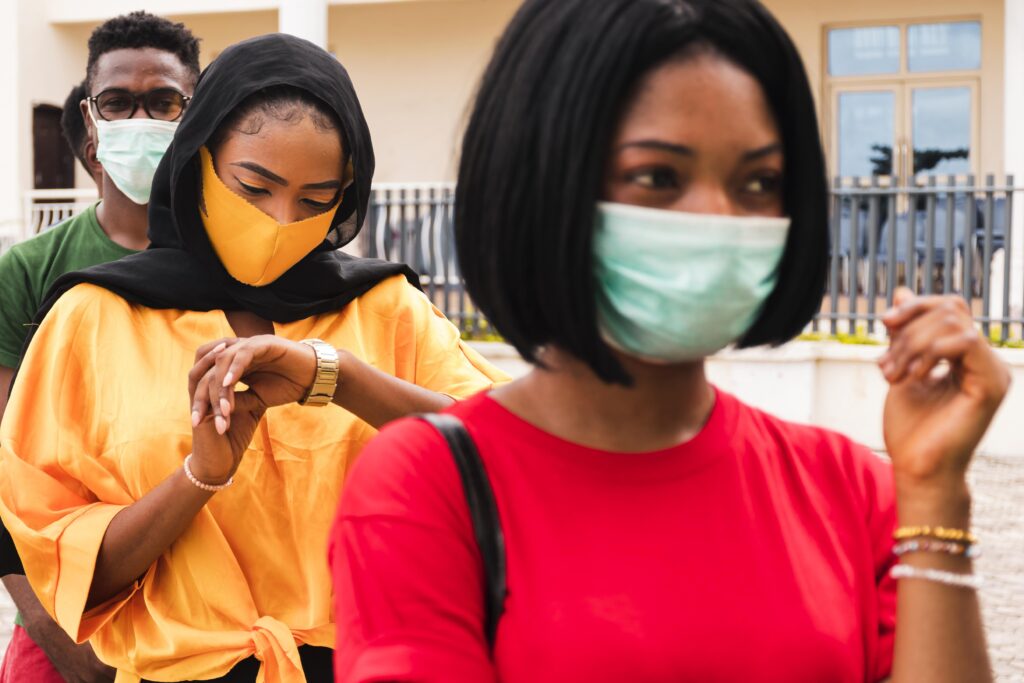
Tidiane Ndoye shares how his experiences nurtured his passion for gender issues in health, and his role as a lead gender expert in the AI4COVID research project, Using artificial intelligence to combat COVID-19 in Senegal and Mali. He reflects on being a mentor of master’s and PhD students and to the broader research team. He raises the critical need for gender and intersectionality in applying AI to address the COVID pandemic to avoid reinforcing inequalities, particularly for women from marginalized groups.
Le genre m’a collé à la peau: Intérêt de l’analyse genre dans une recherche sur l’IA

Tidiane Ndoye explique comment ses expériences ont nourri sa passion pour les questions de genre dans le domaine de la santé et son rôle en tant qu’expert principal en matière de genre dans le projet de recherche AI4COVID, Utilisation de l’intelligence artificielle pour lutter contre le COVID-19 au Sénégal et au Mali. Il évoque son rôle de mentor auprès des étudiants en master et en doctorat, ainsi qu’auprès de l’ensemble de l’équipe de recherche. Il souligne la nécessité de prendre en compte le genre et l’intersectionnalité dans l’application de l’intelligence artificielle pour lutter contre la pandémie de COVID, afin d’éviter de renforcer les inégalités, en particulier pour les femmes issues de groupes marginalisés.
